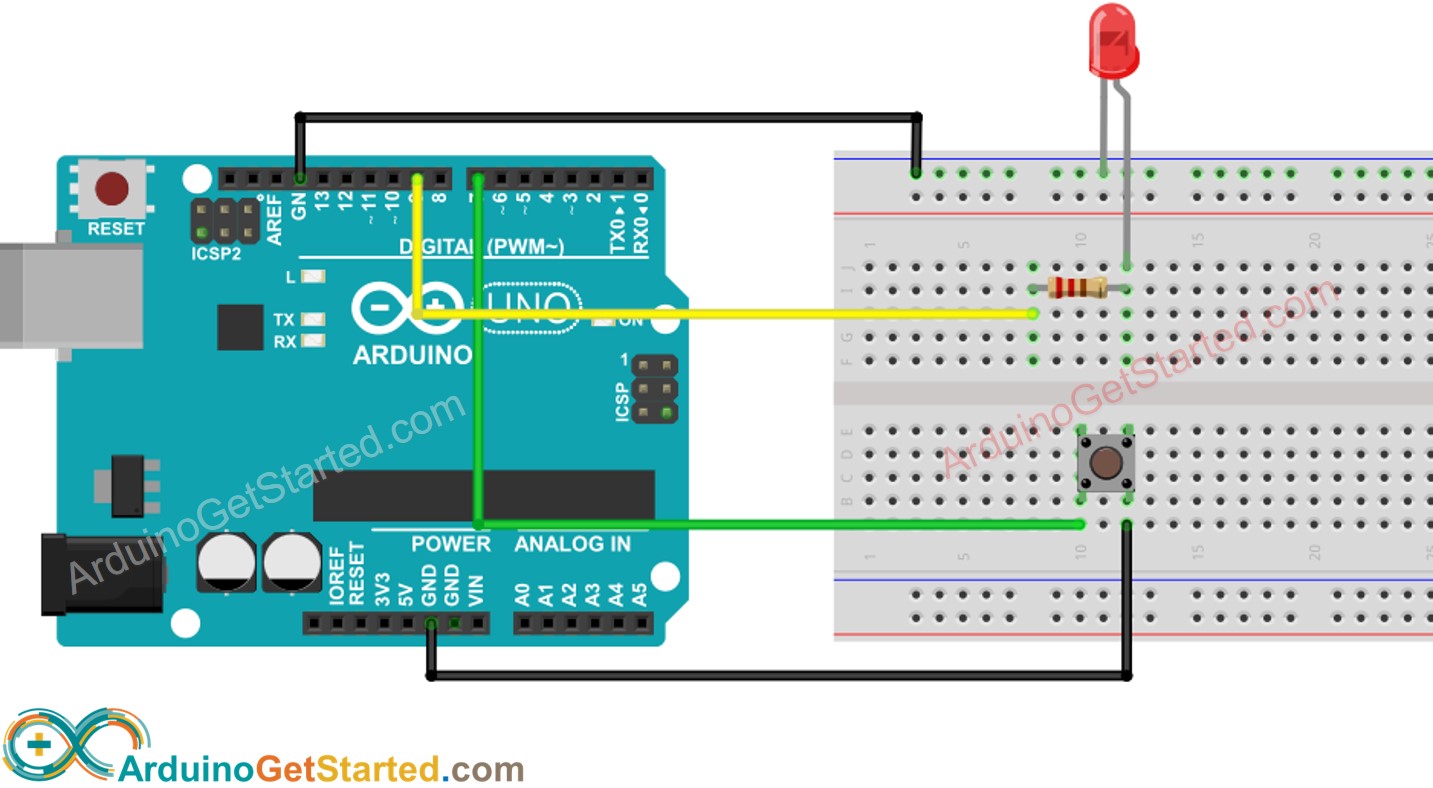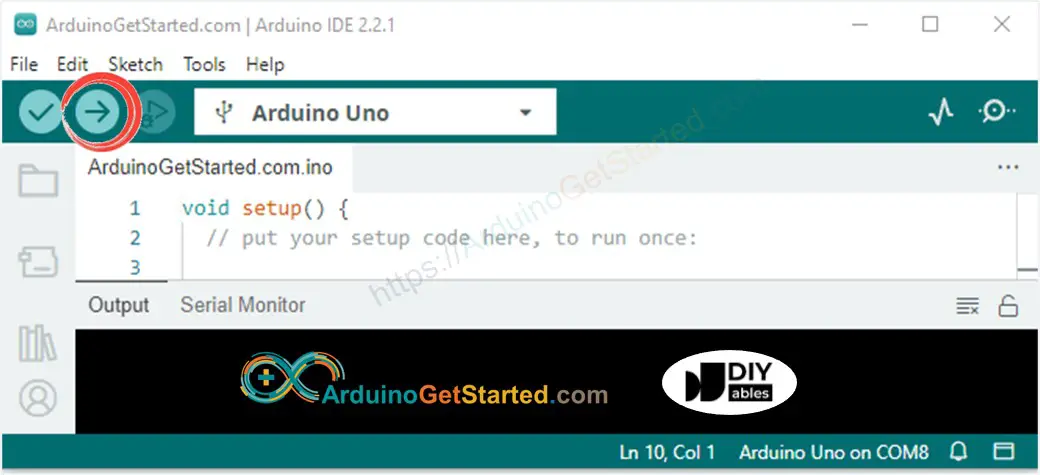ezOutput Library - Single Blink Change Frequency Example
Hardware Required
Please note: These are Amazon affiliate links. If you buy the components through these links, We will get a commission at no extra cost to you. We appreciate it.
About LED
- Refer to Arduino - Led Blink tutorial
About ezOutput Library
- Refer to Arduino - ezOutput Library Reference
Wiring Diagram

This image is created using Fritzing. Click to enlarge image
Arduino Code
Quick Steps
- Install ezOutput library. See How To
- Connect Arduino to PC via USB cable
- Open Arduino IDE, select the right board and port
- On Arduino IDE, Go to File Examples ezOutput 04.SingleBlinkChangeFrequency example
/*
* Created by ArduinoGetStarted.com
*
* This example code is in the public domain
*
* Tutorial page: https://arduinogetstarted.com/tutorials/arduino-output-library
*
* This example blinks an LED:
* + with frequency changed according to the state of a button
. if button is NOT pressed, blink slowly
. if button is pressed, blink fast
* + without using delay() function. This is a non-blocking example
*/
#include <ezOutput.h> // ezOutput library
const int BUTTON_PIN = 7;
ezOutput led(9); // create ezOutput object that attach to pin 9;
void setup() {
pinMode(BUTTON_PIN, INPUT_PULLUP);
}
void loop() {
led.loop(); // MUST call the led.loop() function in loop()
int buttonState = digitalRead(BUTTON_PIN);
if(buttonState == HIGH) // button is not pressed
led.blink(500, 500); // 500 milliseconds ON, 500 milliseconds OFF
else // button is pressed
led.blink(200, 200); // 200 milliseconds ON, 200 milliseconds OFF
}
- Click Upload button on Arduino IDE to upload code to Arduino

- Press and release the button
- See LED's state
Code Explanation
Read the line-by-line explanation in comment lines of source code!

